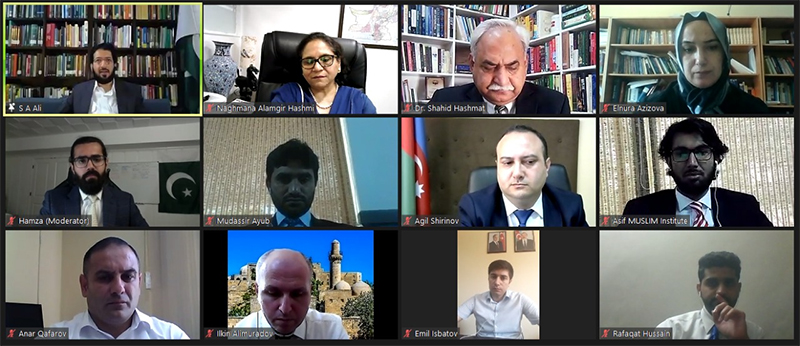|
Moderation and tolerance are unique qualities of a human being and are the essence of Islam provided that their actual meanings are understood and acted upon in letter and spirit. Perpetual increase in extremism and radicalisation around the globe has made it more important for world community to understand the Islamic concept of moderation. To understand the meaning of Islamic moderation, one needs to understand that Islam is a complete way of life and not just a precept of beliefs and rituals. The Islamic concept of moderation encompasses physical, spiritual, psychological, legal, intellectual, and philosophical aspects of life. It transforms both the individual character and the collective culture thus affecting personal as well as national life of an individual. International aspects of communal life are also covered by the Islamic concept of moderation i.e. social engagements, political encounters, religious doctrines, spiritual realities, civilizational development and nation-building. The Muslim use of the term moderation “al-Wasaṭiyyah’’ is derived from Holy Quran “And, in the same way, (O Muslims,) We made you the best Umma (Community—fair to all with a tolerant, moderate and balanced outlook) so that you may bear witness to the people’’ (Al-Baqarah, 2:143).
|
|
The term “Just/balanced community” i.e., the best, most honourable, most perfect, exemplary is interpreted as referring to the first generation of the Islamic community who received training and education directly from the Holy Prophet. This interpretation includes Sufis as well in the ambit of the best and exemplary community because they are immersed in the love of Allah and Prophet (ﷺ) as Divine truths are revealed to their pure hearts. Sufis are ardent lovers of God; they are immersed in the love of the Holy Prophet (ﷺ). Their hearts have been purified and they are upholders of prophetic light.
Sufis exemplify the best qualities of gentleness, humility, tolerance, patience, forgiveness, magnanimity of spirit and there is no anger. One who loves God, not just tolerates, but necessarily loves and respects His entire creation. Love, respect, and service to humanity is a mark of reverence for Allah, the Creator. Mevlana Rumi says “Come, come whoever you are”. Whether you are a Jew or a Christian, or a Muslim, whether you are praying in a church or in a temple or in a mosque or synagogue, come and join this caravan of love. This is demonstrated in Sufi shrines across the world especially in South Asia that are visited by people from all religions and where food is indiscriminately served to all. This food is made of lentils because lentils are eaten alike by Hindus, Sikhs, Christians, and Muslims.
|
|
|
|
|
|
|
